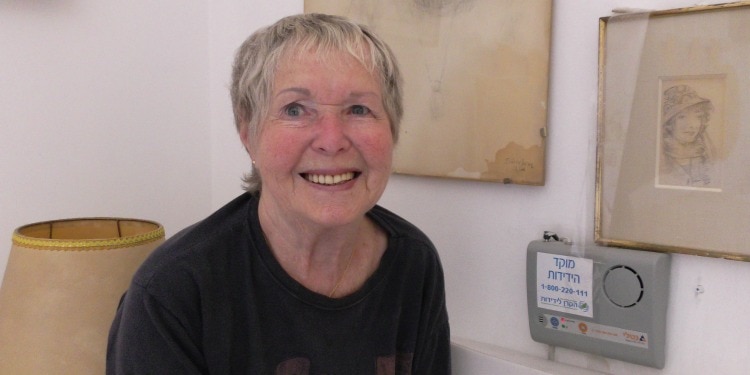Project Spotlight: Emergency Call Buttons for Holocaust Survivors
The Fellowship | June 21, 2016

The Fellowship provides emergency call buttons to Holocaust survivors throughout Israel. Many of these survivors are homebound and have no local family to check on them.
The buttons are connected to call centers that are able to send an ambulance in the case of an emergency, arrange for medical transport, and coordinate physician and paramedic house calls as needed.
Miriam, 87, is one of the 7,000 Holocaust survivors who have had a Fellowship emergency call button installed in their home.
Miriam grew up in France. After her father was arrested by the Nazis in 1940, her mother began doing anything possible to save herself and her daughter. “The first thing my mother did was send me to live with a Christian family. We then moved to the home of another Christian family that hid both of us.”
During that time Miriam’s mother was able to arrange counterfeit identity cards that didn’t note the fact that they were Jewish. The cards allowed them to move to central France and live among Christians until the end of the war.
“Towards the end of 1944, the Nazis came and threw all of the people from the neighboring town into the local church and killed them all,” Miriam recalls. “On that same day, the Germans came to the town in which we were hiding. The first thing they did was go to the police station, where they killed all of the police officers. They then went from house to house and killed people.”
Miriam and her mother were hiding in the back of the shack in which they had been living. “I was told that the Germans stuck their heads into the window but they left because they thought the place was empty. That was the closest to death that I remember. It wasn’t long after that the Americans came and liberated France.” It wasn’t until later that they learned that Miriam’s father had been killed a month after he arrived at Auschwitz.
Miriam made aliyah (immigrated to Israel) on her own in 1949. “My mother stayed behind in Paris because her mother was in an old-age home.” Miriam lived in a tent camp near Netanya, where she eventually met Eli, the man she would marry. After studying graphics at the Bezalel Academy of Art and Design, she worked as an archeological illustrator for many years. “Now that I’m 87 and Eli is 93, I spend my days taking care of him.”
“After Eli broke his hip, we were approached by The Fellowship and offered the call button. Our children live in Haifa and we essentially have no one in Jerusalem we can turn to in the event of an emergency. We’ve had to use it a couple of times when Eli needed a doctor in the middle of the night. How else would we be able to get a house call? This gives us such a feeling of confidence. When you think of the fact that at our age we could fall at any time and now we can call someone, it’s a great feeling of relief.
“This emergency call button is a wonderful thing to have in the house. It gives us the feeling that there’s someone else here with us. Christians took care of me when I was young, and Christians are taking care of me in my old age. Thank you, and God bless you all.”
